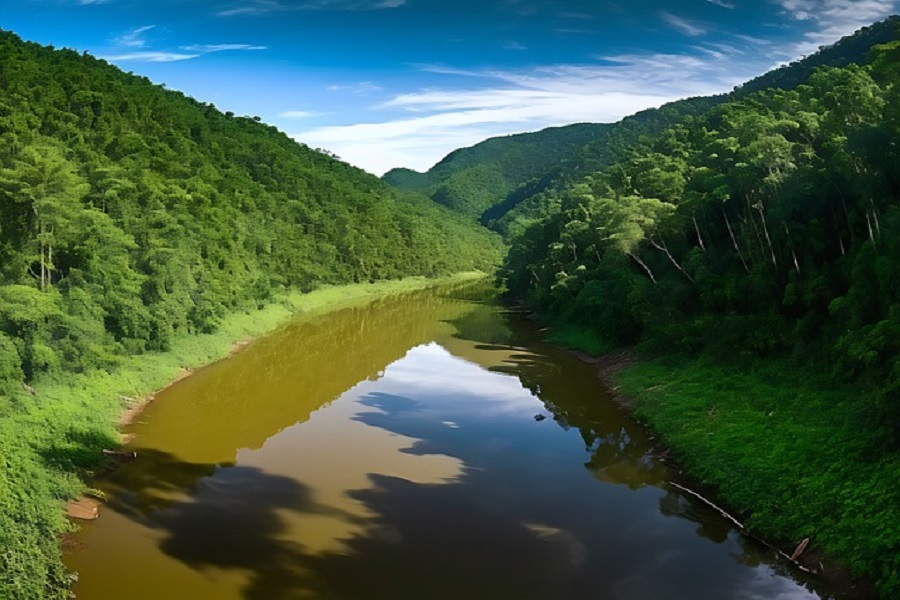The Ethical Traveler: How to Contribute to Conservation on Your Next Eco Trip

As travelers become more conscious of their environmental impact, a growing movement is reshaping the way people approach tourism. Eco-conscious travel, often referred to as "ethical travel," focuses on minimizing harm to the environment, supporting local communities, and preserving cultural heritage. This shift is not only about experiencing the world responsibly but also about actively contributing to conservation efforts during your travels. From staying in eco-friendly accommodations to supporting wildlife conservation projects, there are numerous ways for travelers to make a positive impact on the places they visit. By adopting ethical travel practices, travelers can help protect the planet for future generations while enjoying the beauty and diversity of the world.
Understanding Ethical Travel and Its Importance
Ethical travel goes beyond reducing waste and carbon emissions. It involves a comprehensive approach to tourism that respects both the environment and the people who inhabit it. This philosophy aims to promote sustainability, ensure fair wages for local communities, protect wildlife, and preserve cultural traditions. For eco-conscious travelers, ethical travel isn’t just a trend—it’s a way of being.
With the tourism industry often contributing to environmental degradation and cultural erosion, ethical travel helps counterbalance these negative effects. It offers a way for tourists to explore destinations in a responsible manner, ensuring that their trip benefits the local environment and community while leaving minimal impact. Whether it’s supporting conservation efforts, staying in sustainable accommodations, or choosing local tours, ethical travel encourages travelers to make decisions that benefit both the destination and its inhabitants.
Key Ways Ethical Travelers Can Contribute to Conservation
- Choose Eco-Friendly Accommodations
One of the most effective ways to reduce your environmental footprint while traveling is by choosing accommodations that are committed to sustainability. Many eco-friendly hotels and resorts incorporate energy-saving measures, use renewable energy, recycle waste, and minimize water consumption. Some even work with local conservation programs, helping preserve natural resources and wildlife in the surrounding area. Supporting these accommodations ensures that your stay contributes positively to the local ecosystem.
- Support Wildlife Conservation Efforts
Wildlife tourism has the potential to provide significant funding for conservation, but it can also have negative effects if not approached responsibly. Ethical travelers can support wildlife conservation by visiting accredited reserves, sanctuaries, and national parks that prioritize animal welfare. For instance, rather than supporting attractions that exploit animals, such as elephant rides or performing dolphins, travelers should seek out ethical wildlife tours and volunteer opportunities that contribute to the preservation of species and their habitats. Donations to reputable conservation organizations or participating in eco-tourism programs that fund local wildlife protection are also meaningful ways to contribute.
- Respect Local Cultures and Communities
An often-overlooked aspect of ethical travel is cultural preservation. Ethical travelers make an effort to understand and respect local customs, traditions, and ways of life. Supporting indigenous communities and local businesses—whether through buying handcrafted goods, eating at local restaurants, or staying in locally-owned accommodations—helps ensure that economic benefits stay within the community. When interacting with locals, it’s crucial to be mindful of cultural sensitivities, avoid harmful stereotypes, and seek opportunities for cultural exchange that promote mutual respect.
- Practice Responsible Consumption
Ethical travelers strive to minimize their consumption of single-use plastics, reduce food waste, and make environmentally conscious purchasing decisions. Using refillable water bottles, carrying reusable shopping bags, and choosing sustainable products help to lessen the environmental burden. Moreover, ethical travelers can also make an effort to eat local, organic, and plant-based foods, reducing the carbon footprint associated with imported goods and promoting sustainable agricultural practices.
- Opt for Low-Impact Transportation
Transportation is one of the most significant contributors to a tourist’s carbon footprint. Ethical travelers can choose environmentally-friendly transport options, such as trains, buses, or bicycles, rather than flying or using cars for short distances. When air travel is necessary, opting for direct flights, which consume fewer resources than connecting flights, and supporting airlines with strong environmental policies can make a difference. Many destinations also offer sustainable transport options, like electric bikes and electric vehicle rentals, which can reduce emissions while providing a unique way to explore the surroundings.
Sustainable Travel Destinations
As ethical travel continues to rise in popularity, many destinations around the world are embracing sustainable tourism practices. Some of the most well-known eco-friendly travel spots include:
-
Costa Rica – Known for its biodiversity and commitment to conservation, Costa Rica is a pioneer in eco-tourism. The country boasts numerous national parks and reserves where travelers can experience wildlife and lush landscapes without damaging the environment.
-
New Zealand – With its stringent environmental protections and numerous conservation initiatives, New Zealand is a fantastic destination for ethical travelers. The country’s eco-lodges, wildlife sanctuaries, and hiking trails allow tourists to experience natural beauty while supporting sustainability.
-
Bhutan – Bhutan is a model for eco-tourism, with policies aimed at maintaining its pristine natural landscapes. The country promotes sustainable travel practices by limiting tourist numbers and prioritizing conservation efforts to protect its ecosystems and culture.
-
Norway – Known for its breathtaking fjords and commitment to environmental protection, Norway offers sustainable travel experiences, from eco-friendly hotels to electric ferries that minimize emissions.
-
Kenya – As home to several world-renowned wildlife reserves, Kenya offers opportunities for ethical travelers to participate in wildlife conservation programs while enjoying safaris that prioritize animal welfare and conservation efforts.
The Future of Ethical Travel
The rise of ethical travel signals a positive shift toward more responsible and sustainable tourism. With increasing awareness about the importance of conservation and sustainability, more travelers are making conscious decisions to protect the places they visit. In the future, ethical travel is likely to grow in importance, with travelers demanding more sustainable options and supporting destinations that prioritize environmental protection and local empowerment.
As ethical travelers, we have the power to shape the future of tourism. By making thoughtful decisions about where we travel, how we spend our money, and how we engage with local cultures and ecosystems, we can ensure that our trips not only enrich our lives but also contribute to the protection and preservation of the world’s natural and cultural heritage.
Conclusion
Being an ethical traveler is more than just a trend—it’s a lifestyle choice that emphasizes responsibility, sustainability, and respect for the environment and local communities. Whether supporting conservation programs, reducing waste, or choosing responsible accommodations, ethical travel offers numerous ways to contribute to the preservation of the planet. By embracing these practices, travelers can make a lasting positive impact on the places they visit and help shape a more sustainable future for the travel industry.





















